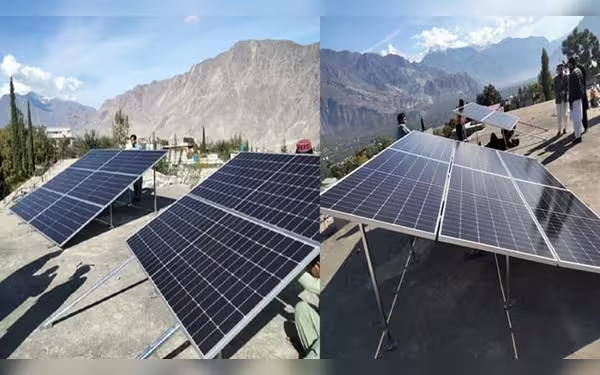Saturday, November 16, 2024 10:50 PM
Solarisation of 100 Rural ICT Schools in Pakistan
- 100 rural ICT schools to be solarised.
- Project ensures uninterrupted learning experiences.
- Sustainable energy solution aligns with greener future.
 Image Credits: thenews
Image Credits: thenewsThe Ministry of Federal Education initiates solarisation of 100 rural ICT schools, ensuring reliable power and enhancing educational infrastructure in Pakistan.
In a significant move towards enhancing educational infrastructure in Pakistan, the Ministry of Federal Education and Professional Training has initiated a project to solarise 100 rural ICT schools. This initiative aims to provide a reliable and sustainable power backup, ensuring that students in these areas have access to quality education without the interruptions caused by power outages.
The importance of electricity in schools cannot be overstated. It is the backbone of modern education, powering everything from computers to projectors. Unfortunately, many rural schools in Pakistan face frequent power cuts, which disrupt learning and hinder the use of technology in classrooms. By solarising these schools, the government is taking a crucial step to ensure that students can enjoy uninterrupted learning experiences.
According to the Education Ministry, the project will not only provide reliable renewable energy for schools and laboratories but is also expected to recover its costs within 20 months. This means that the investment made in solar energy will pay off quickly, allowing for further improvements in educational facilities. The ministry is committed to enhancing educational outcomes through the integration of technology, which is essential in today’s digital age.
Moreover, this sustainable energy solution is a win-win for the environment. By reducing the carbon footprint associated with traditional energy sources, the initiative aligns with Pakistan’s vision for a greener future. It minimizes power outages, fosters digital literacy among students, and supports the country’s goal of developing a technologically advanced education system.
The solarisation of 100 rural ICT schools is a commendable step towards ensuring that every child in Pakistan has access to quality education. It reflects a broader commitment to not only improve educational outcomes but also to embrace sustainable practices that benefit both students and the environment. As this project unfolds, it will be interesting to see how it transforms the educational landscape in rural areas, paving the way for a brighter future for countless students.













